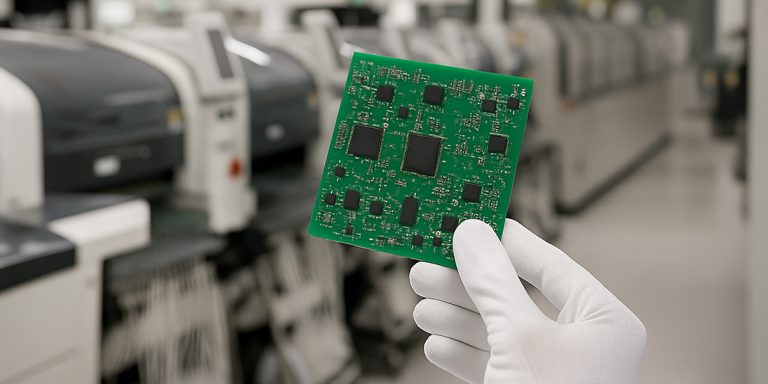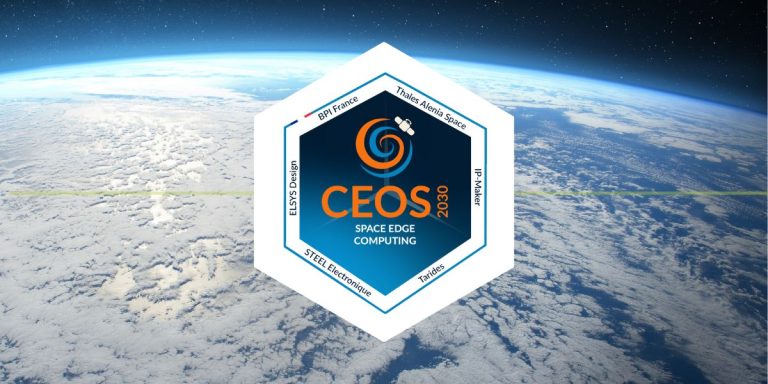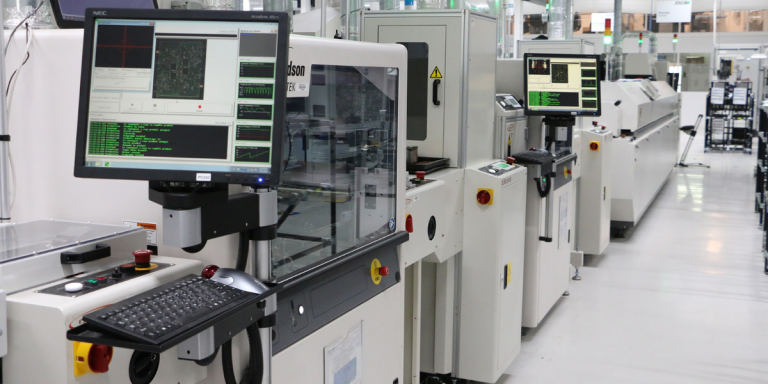With ten telematics platforms and more than three million certified vehicles deployed in over 120 countries, ACTIA manages the certification of its own embedded radio products, and those of its customers, with recognised expertise. Why is radio certification of vital importance in a varied and constantly changing worldwide regulatory environment? And what are the challenges that ACTIA faces, and the processes used to ensure the worldwide certification of radio products? Find out below.
The challenges of certifying embedded radio products
Radio certification: a guarantee of regulatory compliance
Radio certification of embedded products goes far beyond a simple regulatory requirement. It is of paramount importance for ensuring that devices comply with the stringent operating standards laid down by:
- the industry,
- the local regulations,
- the network operators in each operating region.
ACTIA understands the importance of this certification and works hard to meet these requirements for its off-the-shelf telematics platforms, as well as for those that the group develops and manufactures for its products.
Radio certification guarantees that radio products comply with current regulations, enabling them to be sold and used legally on international markets.
Monitoring of the radio frequency spectrum and compliance with technical standards
The radio spectrum is under the control of each national radio authority. This means that each country strictly regulates the use of radio frequencies before authorising the introduction of a product into its territory. ACTIA recognises this fact and assumes responsibility for certifying its radio products in accordance with current regulations.
Radio certification guarantees that the devices comply with established technical standards, thus preventing any interference with other equipment and the use of unauthorised frequencies, including military airbands.
The importance of radio certification in the worldwide marketing of embedded communicating products
Radio certification plays an essential role in the worldwide marketing of communicating and embedded products. By obtaining certification, ACTIA demonstrates that its products comply with international regulations, making it easier for them to be accepted on world markets. This enables its manufacturer customers to gain a foothold in new countries and expand their international presence.
Radio certification is a guarantee of quality and trust for manufacturers, as it certifies that ACTIA products meet stringent operating standards and are compatible with existing systems and networks.
Radio certification is also a prerequisite for establishing business partnerships with other industry players and for meeting the requirements of customers and network operators. Without this certification, it would be difficult, if not impossible, to enter certain markets or participate in major international projects.
Radio certification is therefore of vital importance in the worldwide marketing of telematics products. ACTIA recognises the challenges associated with this certification and is committed to ensuring that its products comply with current regulations, enabling it to consolidate its position in international markets and meet the needs of its customers around the world.
Worldwide radio certification: between diversity and complexity
Specific rules for different countries
Technical documentation
Radio certification of embedded products requires compliance with the specific rules and requirements of each country. Some countries accept the submission of technical documentation to the appropriate authority, based on RED approval (European Directive 2014/53/EU) or FCC (Federal Communications Commission) regulations in the United States. ACTIA provides detailed documentation to demonstrate the compliance of its products.
More and more tests
However, in some countries, such as Tunisia, Australia, China, Japan, Korea, Indonesia, Malaysia, Moldova, Serbia, Mexico, and Argentina, etc., additional tests are required. In these cases, ACTIA relies on its network of 30 approved external laboratories, which comply with the ISO 17025 standard, to conduct the required tests. This guarantees that the products meet the technical requirements specific to each country and comply with the operating standards in force.
Labels and other specific restrictions
In addition to the documentary and test requirements, certain countries impose additional constraints on radio certification. Some require the telematics product to be marked, indicating its compliance with the regulatory standards in force. In other countries, such as Russia, specific registration is required before the product can be marketed.
Other restrictions may also apply, such as:
- The obligation to have a local representative in the country,
- The need to have a Telecom licence for the local importer,
- The use of a local SIM card,
- Or even the obligation to use local servers to store data.
Some countries may also impose specific restrictions on certain technologies, such as the ban on outdoor 5 GHz Wi-Fi in Japan,or the requirement for a special licence to use GPS in Egypt and Algeria.
ACTIA adapts to these specificities to guarantee that its products comply and to make them easier to market in each country.
Certificate validity period: a wide range of practices
The validity period of the radio certification certificate varies from country to country. Most countries have an unlimited validity period, which means that the certificate remains valid indefinitely, provided that the products do not undergo any major modifications. However, in some countries in Africa, South America, Asia and the 11 countries in the CIS (Commonwealth of Independent States), certification must be renewed every 4 to 10 years to ensure that products continue to comply with regulatory standards.
Others, such as Mexico, Brazil, China, and most countries in the Middle East, have shorter validity periods, generally from 1 to 3 years. ACTIA closely monitors these certification renewal periods to ensure that its products continue to comply with the standards in force and have valid certification when they are placed on the market.
Radio certification costs
In addition to regulatory requirements, certification of radio products can result in significant costs. These costs relate to:
- Laboratory fees,
- Fees for approval from local authorities,
- Translation costs,
- Notary fees,
- The cost of developing a specific application for tests,
- The cost of manufacturing prototypes for tests,
- The cost of updating labels, etc,
- And other related expenses (visits to the laboratory, legal expertise, etc.).
Local tests can run tens of thousands of euros, depending on the country and the specific requirements.
Time limits for assessment by local authorities
The time limit for assessment by the local authorities also varies depending on a number of factors. In addition to the desire of local authorities to speed up or slow down the process (out of protectionism), other factors such as the geopolitical, health or indeed climate situation can also have an impact on the time needed to obtain certification. For example, the COVID-19 pandemic caused delays in the certification process in many countries. ACTIA is aware of these factors and effectively manages the time needed to obtain the required certifications.
Bureaucratic mazes
Countries such as China, Japan, Korea, Vietnam, and Russia impose particularly cumbersome bureaucratic procedures during the certification process for radio products.
These procedures include complex requirements for:
- Technical documentation,
- Legal procedures,
- Purchasing,
- Accounting,
- Official documents to be produced,
- ISO standards,
- Delegation of authority,
- Signature authentication for ACTIA’s General Management,
- Production plant audits,
- Etc.
These bureaucratic formalities can be time-consuming and require careful management to ensure the regulatory compliance of products and to market them in these countries.
A team dedicated to worldwide radio certification
The role of the ACTIA certification team
To meet these complex challenges, ACTIA has set up a team dedicated to the worldwide certification of its radio products. The team includes specialists such as Nicolas Jestin, who has 10 years of expertise in radio certification. Their expertise and in-depth knowledge of regulations and certification processes are essential to ensure that ACTIA’s products comply with current standards.
Nicolas Jestin confirms:
“In recent years, we have seen an increase in scrutiny from local authorities, often requiring local representatives or additional tests for certification. This trend is set to continue, which will affect the length of the certification process and therefore costs.
For example, recently,we have undergone changes related to the European Radio Equipment Directive 2014/53/EU (RED) requiring additional tests of Wi-Fi/Bluetooth technologies, new cybersecurity requirements in Japan, new IPV6-related tests in Brazil and China, and a new approval process in the UK due to Brexit: UKCA (UK Conformity Assessed).
The certification team works closely with local representatives, radio authorities and foreign laboratories to provide a cultural and technical approach tailored to each country. Our role is to manage requests and regulatory requirements, collaborate with ACTIA subsidiaries worldwide and guarantee that products comply with international standards.
Thanks to this organisation and these skills, ACTIA is able to save time, anticipate regulatory changes and ensure that its products meet radio certification requirements in the various countries where they are marketed.”
The role of intermediaries and external laboratories
Collaboration with local representatives, radio authorities and approved external laboratories is essential to ensuring a cultural and technical approach tailored to each country. Local representatives play a key role in providing information on the regulatory requirements specific to each country and facilitate the certification process on the ground. External laboratories are responsible for carrying out the necessary tests to demonstrate that products comply with local technical standards.
“ACTIA has established a network of 30 ISO 17025-compliant accredited external laboratories to meet the specific testing needs of each country. This close collaboration with reliable laboratories enables ACTIA to conduct the required tests efficiently and reduce the time it takes to obtain certification, while also gaining a better understanding of the technical requirements associated with each standard.” Explains Nicolas JESTIN.
ACTIA’s “consulting” approach
ACTIA adopts a consultative approach to radio certification, offering its support and in-depth expertise to some customers. In the case of its TGU-R Telematics Gateway Unit, for example, the group regularly shares information and detailed monitoring with its customers. ACTIA’s newsletter provides an overview of certifications worldwide.
ACTIA’s expertise is not limited to technical certification, but also extends to assessing the relevance of entering certain markets. Thanks to its in-depth regulatory monitoring and knowledge of local conditions, ACTIA assists its customers in making informed decisions and in successfully navigating the complex landscape of worldwide radio certification.
In conclusion, the worldwide certification of radio products is a complex and essential challenge for both ACTIA and its customers.
Thanks to:
- Its dedicated team,
- Its collaboration with intermediaries and external laboratories,
- and its ability to anticipate regulatory changes.
ACTIA manages this process efficiently. This rigorous organisation enables ACTIA to guarantee that its products comply with international standards, while making it easier to market them in different countries around the world.
The regulatory landscape continues to evolve rapidly, and a new stage is in sight with the introduction of the RED cyber standard, which includes certain cybersecurity requirements for radio products. ACTIA is already preparing for these changes by monitoring standards closely and adapting its certification processes.
The future of radio certification for communicating products is therefore marked by upcoming challenges, but also by fresh opportunities. ACTIA is positioning itself as a leader in this field, investing in the expertise, partnerships and technological monitoring needed to stay at the forefront of the embedded electronic systems industry.
ACTIA radio certification in figures:
- 10 certified telematics platforms,
- 3 million units deployed in over 120 countries,
- 30 accredited external partner laboratories that are ISO 17025-compliant,
- TGU-R 4 G W certified in 72 countries to date.







